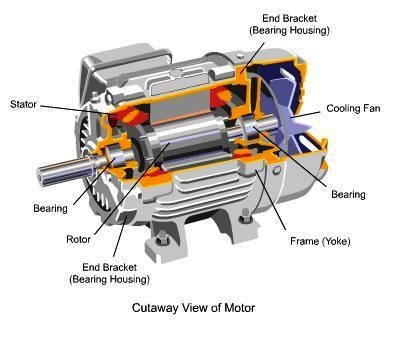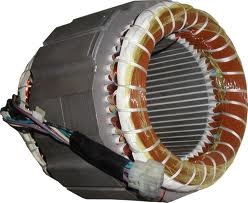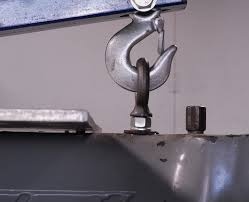Motor:-
Motor convert electrical energy to mechanical energy

Engine convert the chemical energy to the mechanical energy
Advantages of motor
1-Low cost
2-Small size
3-Long life
4-Very low noise
5-Automatic and Remote Start
Disadvantages of motor
1-No speed control
2-Protability
Use of Magnetic induction in motor:-
1-Like poles repel
2-Opposite Poles Attract
Parts of motor
1-Enclosure
2-Stator
3-Rotor
4-Bearings
5-Conduit Box
6-Eye bolt
1-Enclosure:-
Motor protects
Holds are the parts together
Motor save to the internal Enviroment
6234_fa_rszd.jpg)
2-Stator Of the motor
Stator are made by cores cores are thin section iron insuleted with copper wires form one or more pairs of magnetic poles

3-Rotor of motor
Rotating part of the motor this part rotating of motor are stator.stator are the induecd the magnatic filed on to the rotor to push away form the stator field
1672_fa_rszd.jpg)
Wound Rotor of the Motor
the older motor are desigend to the the motor operate is the variable speed
Advantages of wound rotor of the motor
Speed control of motor
High starting torque the motor
motor starting current are very low
Disadvantages of wound rotor motor
very Expensive to install the motor
High Maintenance
Low Efficiency
Bearings
There are types of bearings used in the motor
Sleeve Bearings
Ball ( Roller ) Bearings
Sleeve Bearings
On most motor standard
very Quiet
Only Oil Lubricated
Ball ( Roller ) Bearings
This bearing are the Support the shaft in any postion
This bearing are the Grease Lubricated
This Bearing are sealed no required any mantenance
Other Parts
Condyit Box
In this part the point of connection of electrical power to the motor
Eye bolt are used to very motors to loade the crane
Motor Power
Output power
horse Power
Amount of Power




